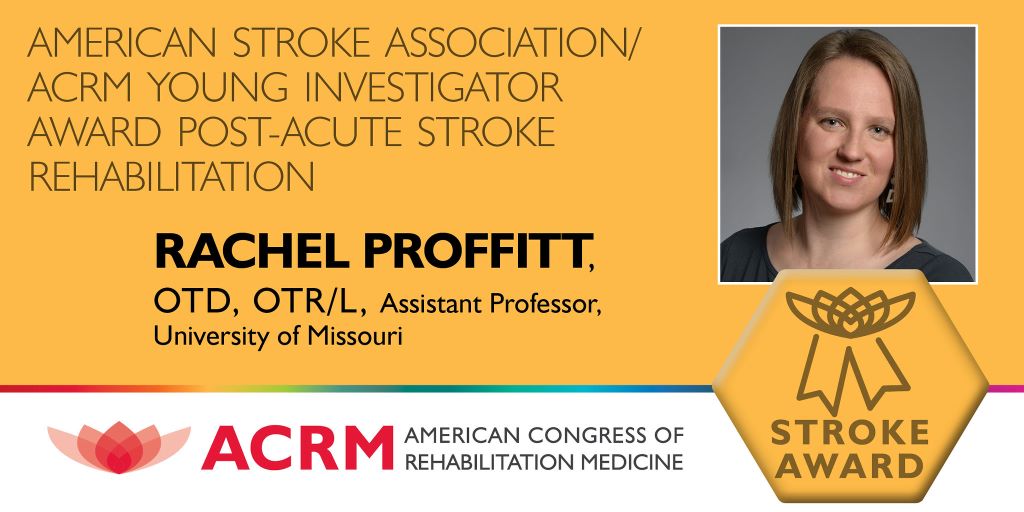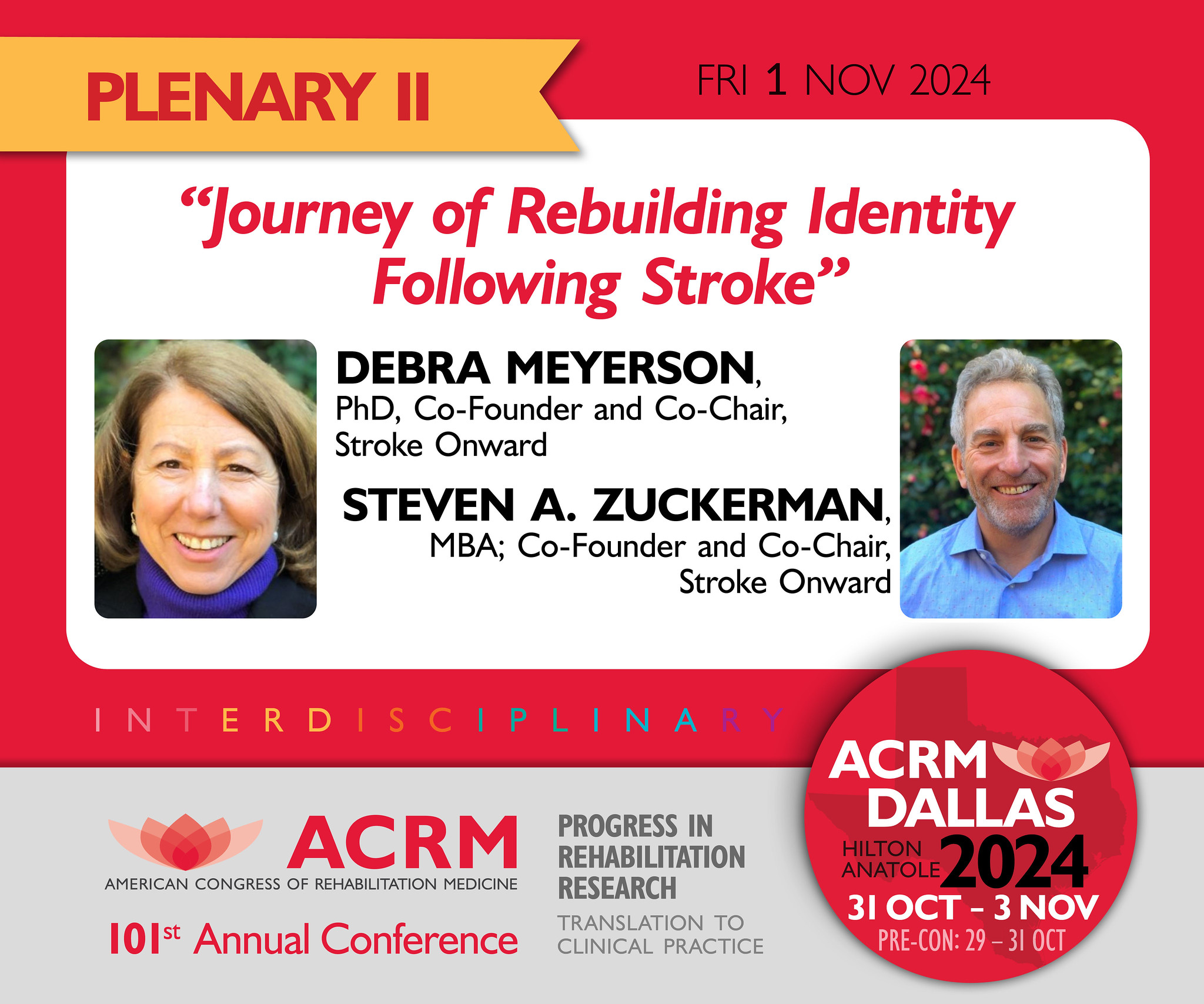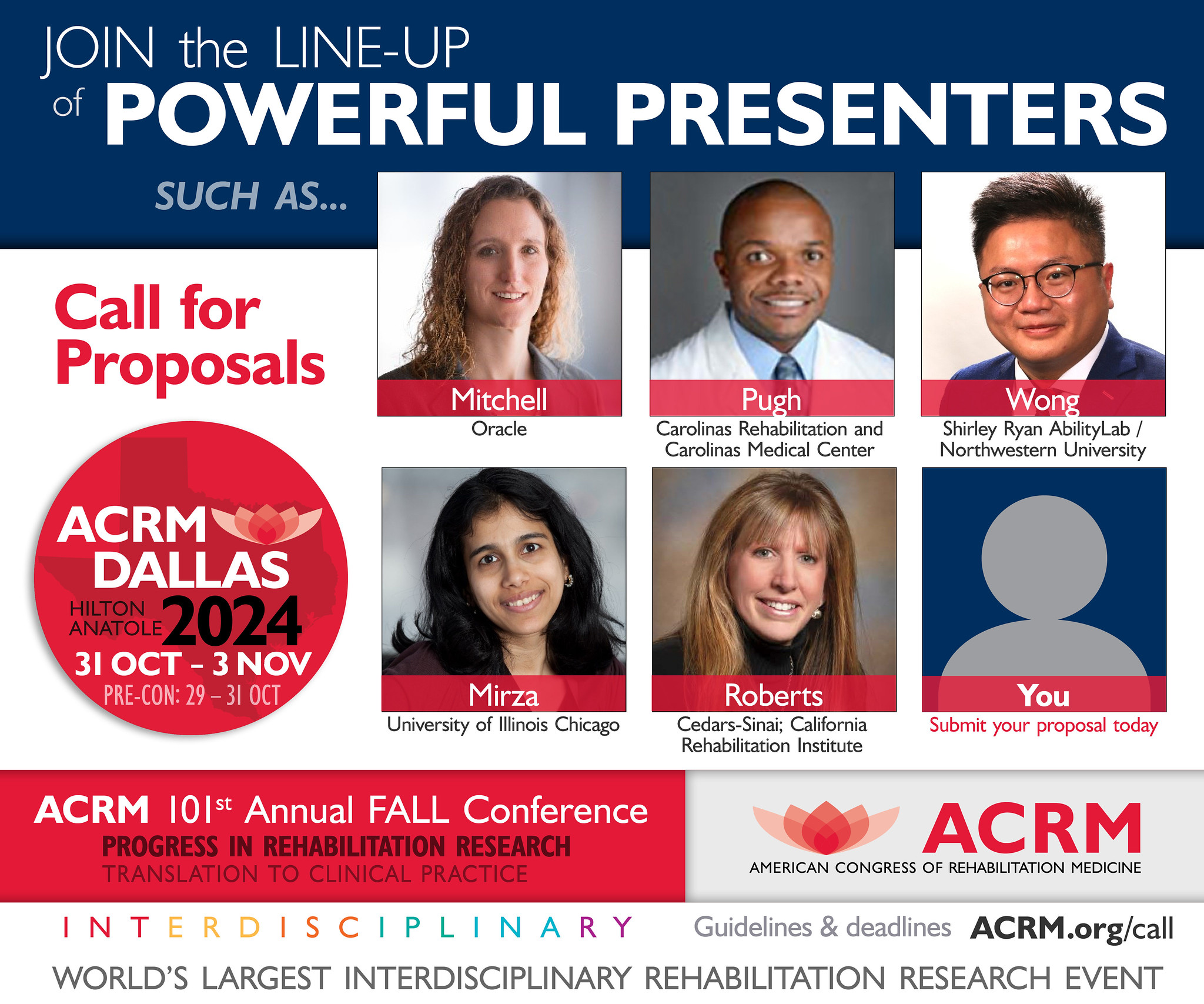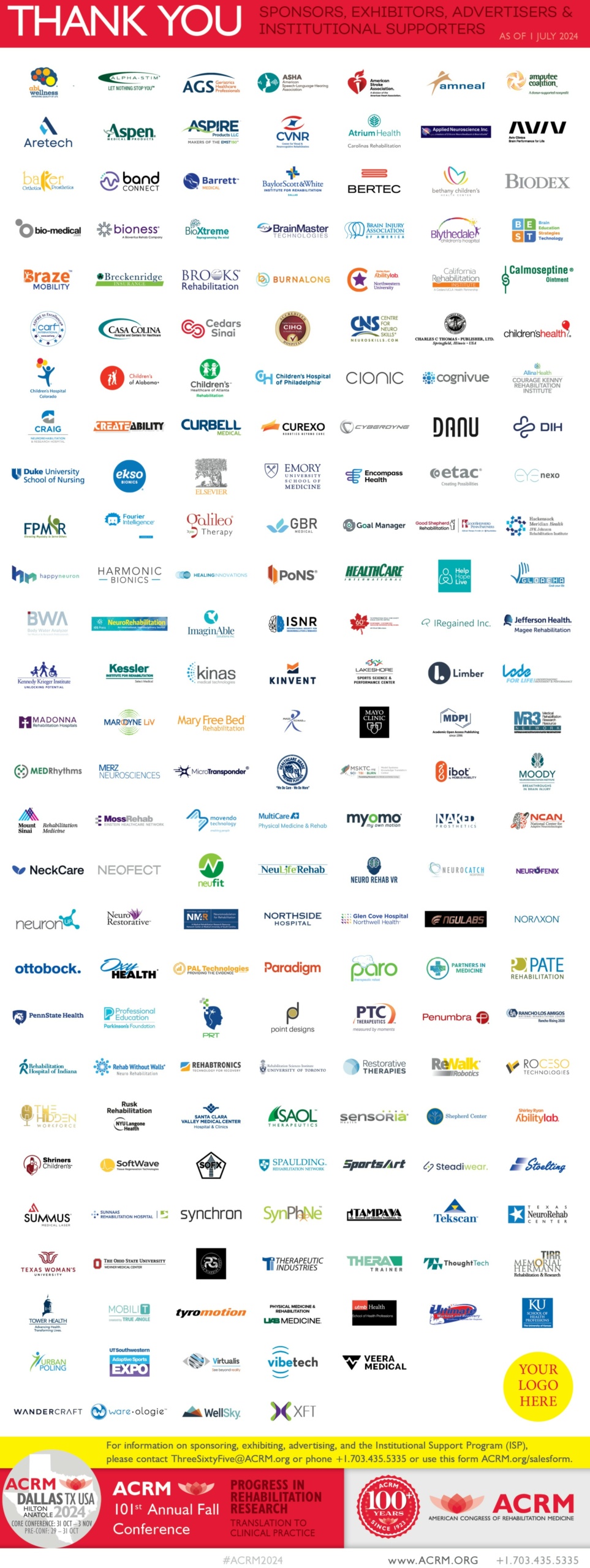American Stroke Association / ACRM Young Investigator Award in Post-Acute Stroke Rehabilitation

CONGRATULATIONS 2020 RECIPIENT
Congratulations to Rachel Proffitt, OTD, OTR/L, recipient of the 2020 ASA/ACRM Young Investigator Award in Post-Acute Stroke Rehabilitation. This award lectureship is co-sponsored by the American Stroke Association and ACRM, and recognizes professionals who demonstrate drive and commitment to furthering rehabilitation research in the area of post-stroke care, measurement, and/or stroke patient outcomes.
Dr. Proffitt will present her award lecture at the ACRM 2020 VIRTUAL Annual Conference where she will discuss her research in advancing stroke rehabilitation using technology and virtual reality applications. Her presentation will include findings from her prior and recent work with an emphasis on how technology can move the field of stroke rehabilitation towards one that is more client-centered and engaing while maximizing the use of data for research and practice.
ABOUT RACHEL PROFFITT
Dr. Rachel Proffitt is Assistant Professor in the Department of Occupational Therapy at the University of Missouri. Her research focuses on developing, testing, and implementing virtual reality-based interventions for adults and older adults post-stroke. Dr. Proffitt has extensive experience working in an interdisciplinary setting with computer scientists and engineers and was previously the Director of the Game Based Rehab Lab at the Institute for Creative Technologies at the University of Southern California (USC). She has completed a T32 postdoctoral fellowship with an emphasis in rehabilitation clinical trials as well as a KL2 Career Development Award. She is currently translating effective interventions, such as LSVT®BIG, for use with the stroke population and pairing telehealth applications for remote delivery in rural areas. Dr. Proffitt is PI of an NIH R21 to develop a new algorithm for activity recognition and assessment in the natural home environment for individuals post-stroke.










